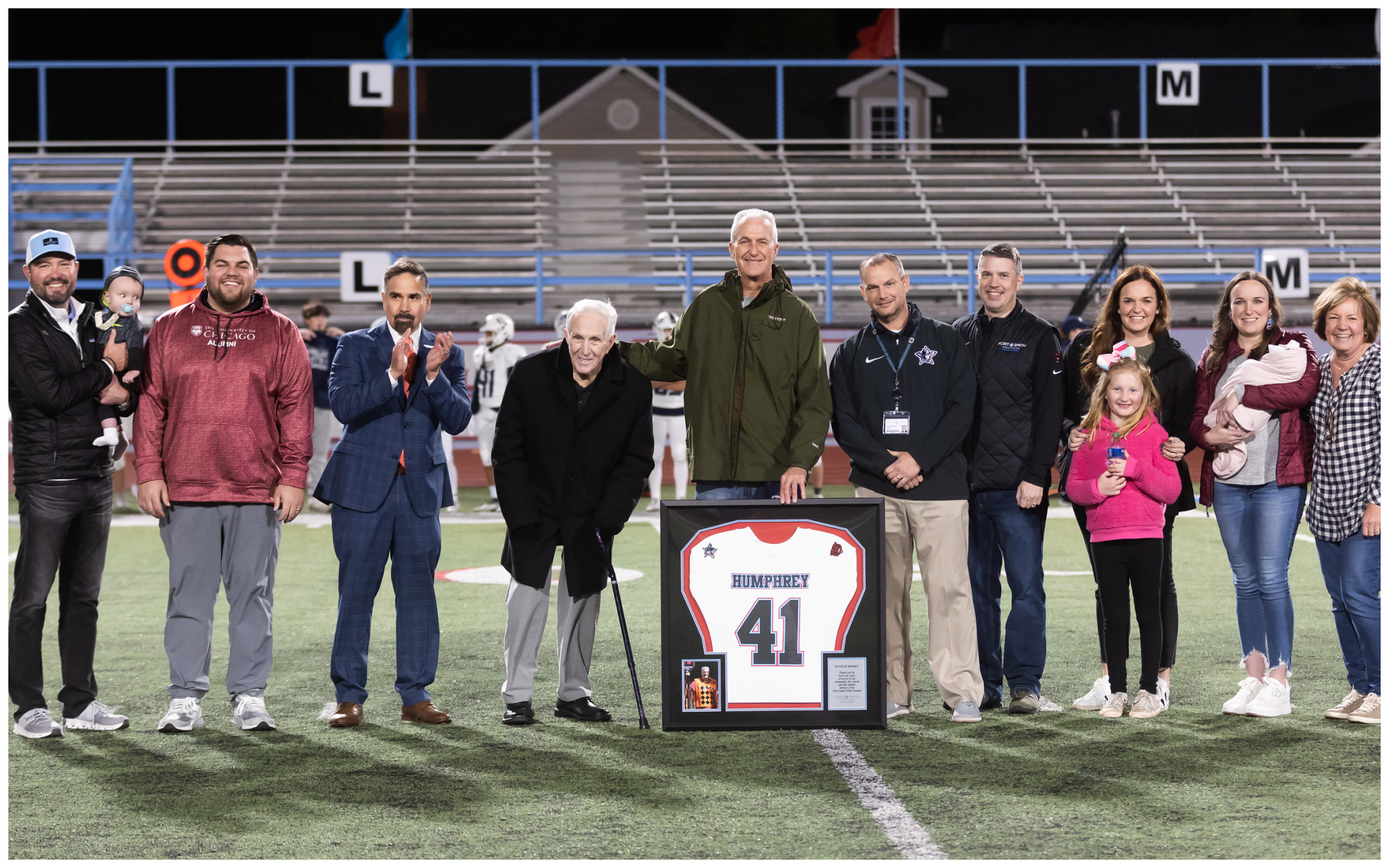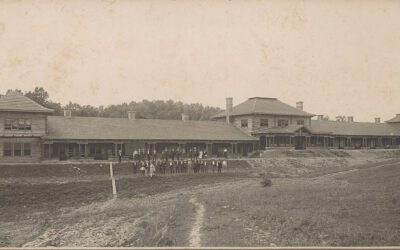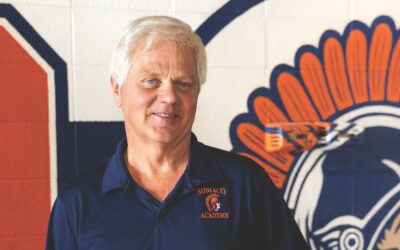Anyone who knew David Humphrey coming up probably wouldn’t have pegged him for a forty-one-year career in football, least of all him.
“I found out very early in life that I loved sports and I watch all the sports, but I never was very good at playing them,” he says. “I remember in the ninth grade playing football and never getting to play very much. I remember practicing for the last game of ninth grade and thinking, ‘You know what? I think football’s not in my future. I think I’m going to retire.’ I do love football, and all sports, but just was never very good, unfortunately.”
David’s story might have ended right there except for a fateful day in the 1980s when Frank Ward, a co-worker, recruited him to be a fill-in on a chain gang working local high school games. After a year as an as-needed sub, he replaced a full-time member of the team who’d moved away and never looked back.
Today, he and his team are still working home high school games for both Fort Smith Northside and Fort Smith Southside. By day, David is vice president of investor relations for ArcBest but on Friday nights he’s the official in charge of a crew that helps keep the game running smoothly.
“All in, including the first fill-in year, I’ve done it forty-one years,” he says. “For a long time [Northside and Southside] played in the same conference so you always had one team that was playing out of town and one team that was playing in town. We always did chains for both schools, so that meant pretty much you worked every week.
“Now they’re in different conferences which can make it kind of interesting. Sometimes they’ll both be out of town at the same time, and you don’t have a game at all or there have been a couple times where they were both in town at the same time which means you have to come up with two chain gangs to cover both games.”
Of all the moving parts that a football game employs, there is arguably no official more often overlooked than the chain gang, a team that tracks placement of the ball after every play. So named because the equipment includes two tall stakes with a ten-yard length of chain between them, the team is critical for determining down and distance to first down or goal, but rarely gets the spotlight.
“If you’re a football fan like I am, you’re kind of right in the middle of the action instead of sitting up in the stands,” David says. “It’s just interesting and fun to do.”
It’s hard to find something in football officiating that would be recognizable from its origins and especially over the past forty-one years. In all areas — including coaches consulting data analytics and sideline iPads, players’ access to video analysis of opponents, and officials’ instant replay — the digital revolution has taken over the game from Friday Night Lights to Monday Night Football. Yet the chain gang remains a staunchly analog island in a sea of such technology.
“You’ve got somebody holding both ends of the chain with the ten yards in between them,” David says. “You’ve got the box that marks first down, second down, third down. And we’ve always had somebody we call the clip man, and that’s the person who marks the ball on the chain in case the chain gets knocked away. You always need to know where to go back to to line up the chains on the proper marker.
“In recent years we’ve gotten really fancy and we put another person on the other side of the field to mark first down. That way, if the ball carrier was running on the other side of the field they know where he must get to in order to get a first down.”
David says the chain gang offers him the best of all possible worlds, allowing a front-row seat to help make sure the game runs smoothly while still avoiding the ire of coaches.
“Doing the chains, you’re still sort of a middleman,” he says. “I’ve seen a lot of interesting situations on the sidelines over the years, but most coaches understand the chain gang’s just doing what they’re told and trying to do the best they can. Most of the screaming and yelling is directed at the officials. Occasionally we get caught up in that but generally most coaches aren’t yelling at the chain gang; they know it probably needs to be directed at their own players or the officials on the field.”
Raging coaches aren’t the only line of fire a chain gang needs to be aware of. Plays that spill out of bounds are another constant hazard and chain gang team members are coached at an early age to drop and run to avoid becoming collateral damage. Even with this awareness serious injury can occur, which is why the first rule of the chain gang, David says, is “Forget the equipment, just get out of the way.
“We had one time in particular involving a guy that helped us for many years,” David says. “There are twenty-two players on the field and twenty of them were all on the other side of the field, except for a receiver and a defensive back that for some reason were on our side. They got into a squabble or whatever and knocked over our guy who was on the end of one of the chains. It was over at Northside before they redid their field, and they had a cinderblock track that probably went back to the 1940s or 1950s.
“They knocked him back and his elbow hit that cinderblock track and I mean he was really hurt pretty bad. What I’ll always remember about that is, they took him to the hospital and after that game was over, we went to the emergency room, and I was standing with him when the doctor came in with the X-ray. He said, ‘It looks like a bomb went off in your elbow.’ I think all of us have at one time or another been knocked over, but that was the worst injury we’ve ever had.”
David can only offer a guesstimate as to how many games he’s worked, but four hundred and fifty over forty-one years isn’t that far off. Along the way, he’s enjoyed many adventures on the field, witnessed amazing plays, suffered through searing heat, endured numbing cold and slogged through miserable downpours. A highlight was getting to work the chains during a high school playoff at the University of Arkansas’ Reynolds Razorback Stadium, but each contest brought with it its own special kind of magic.
Now in his mid-sixties, he’s technically supposed to retire with the close of the current season, but circumstances suggest he’s not going to disappear overnight.
“I probably need to retire; they probably need somebody that moves a little faster than I do now. My problem is I don’t have a very good exit strategy,” he says with a laugh. “I’m not sure who’s going to take it over. I’m working on that, so we’ll see what happens. I told the district athletic director I wouldn’t just leave him in the lurch.
“I’m thinking whoever does take it over I’ll probably tell him I know how it is sometimes when it’s Wednesday and suddenly three people bail on you, and you have got to have somebody. I’ll be there to help them out.”




